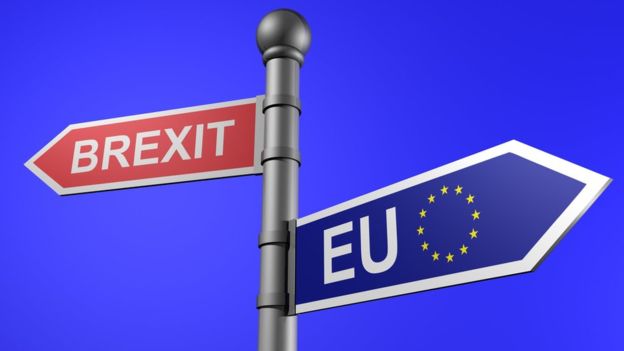Despite the challenges of Brexit, migration and anti-EU sentiment, David Ritchie AO claims that now is the time for Australia to seize opportunities for closer connections with the European Union.
Speaking at the ANU Centre for European Studies’ annual Schuman Lecture on 28 August, the former Australian ambassador to Germany, and the only Australian diplomat to have served on both sides of the Berlin wall, argued that Australian interest ‘will be [in] a strong EU post-Brexit.’
‘What is certain is that there will be a new EU,’ he said, adding that Australia should recognise the opportunities this brings, ‘and have the wisdom to take full advantage of them.’
Ritchie outlined the challenges and opportunities facing Europe, providing a decidedly mixed outlook.
‘Things are definitely not as clear- cut as they might seem,’ he said. ‘There have always been challenges… but rarely have they come together at one time. [These are] more than symptoms of the passing flu.’
For one, we ‘should not be complacent’ about the closely-fought elections in France and the Netherlands.
‘Populism is not dead in Europe,’ Richie said, noting that political forces like Le Pen’s Front National are ‘there and waiting’ for Macron to stumble, while populist parties have gained power in central and eastern European nations such as Hungary.
Still, ‘Europe isn’t about to fall over,’ he added. Pro-EU governments retain power in Germany and France, and Ritchie pointed out that, from the German point of view, the solution to Europe’s challenges is more integration, not less.
He also quoted a recent Pew Research Centre poll suggesting that public opinion is currently quite positive about the EU.
But with Brexit negotiations, a splintered internal consultation process and difficulties achieving consensus among member states, the EU faces many challenges.
‘We simply don’t know yet, what the new, Britain-less Europe will look like,’ Ritchie said.
Migration is a one of these challenges. It plays into the other problems, such as relations with Turkey and North Africa, questions of border control and further integration, and the uneven distribution of responsibility among member states.
‘Almost no other issue… has so divided Europe,’ Ritchie, pictured, said.
Another difficulty is the ‘confusion and opacity’ that the Trump Administration has brought to the United States-EU security relationship.
Ritchie said that there has been a ‘definite shift’ in European attitudes to the US, with polls in Germany revealing that, far from its traditional place as Europe’s security guarantor, Germans now view the US as a greater threat than Russia.
‘Europeans are beginning to doubt that the values they hold are still shared by the US,’ Ritchie explained.
But despite claims that Europe must ‘take its fate into its own hands’, Ritchie thinks the EU is ‘still a long way short of that.’
He claimed that these divisions mean that, despite the ‘blatantly self-serving’ nature of claims, such as that of Russian foreign minister Sergei Lavrov that we are living in a ‘post-West world order,’ the West must not blow off these assertions. We need to ‘give some thought as to whether the West as we’ve known it is morphing, or even crumbling,’ he said. ‘We should take nothing at all for granted.’
Yet despite the significant challenges, Ritchie’s advice to Australia is that we ‘shouldn’t wallow in self-pity about all this change.’
‘We need to develop a habit of dialogue across the board,’ with both the EU and individual member states, he counselled. But, ‘the new Europe has to be built first.’
We acknowledge the Ngunnawal and Ngambri people, who are the Traditional Custodians of the land on which Woroni, Woroni Radio and Woroni TV are created, edited, published, printed and distributed. We pay our respects to Elders past and present. We acknowledge that the name Woroni was taken from the Wadi Wadi Nation without permission, and we are striving to do better for future reconciliation.
